It seems to me that the information that betting so heavily on FTX and SBF was an avoidable failure. So what could we have done ex-ante to avoid it?
You have to suggest things we could have actually done with the information we had. Some examples of information we had:
First, the best counterargument:
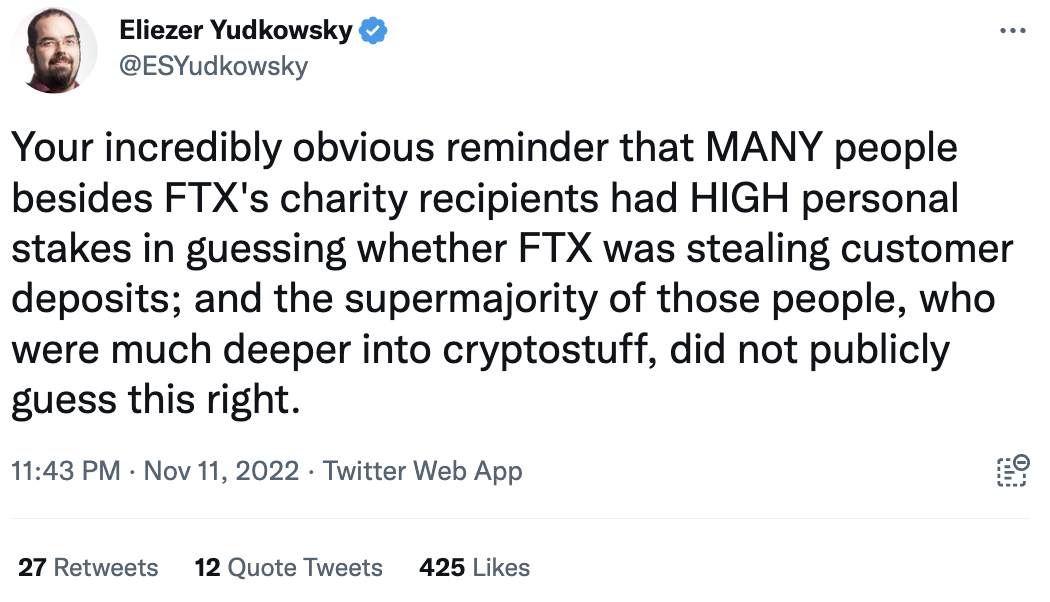
Then again, if we think we are better at spotting x-risks then these people maybe this should make us update towards being worse at predicting things.
Also I know there is a temptation to wait until the dust settles, but I don't think that's right. We are a community with useful information-gathering technology. We are capable of discussing here.
Things we knew at the time
We knew that about half of Alameda left at one time. I'm pretty sure many are EAs or know them and they would have had some sense of this.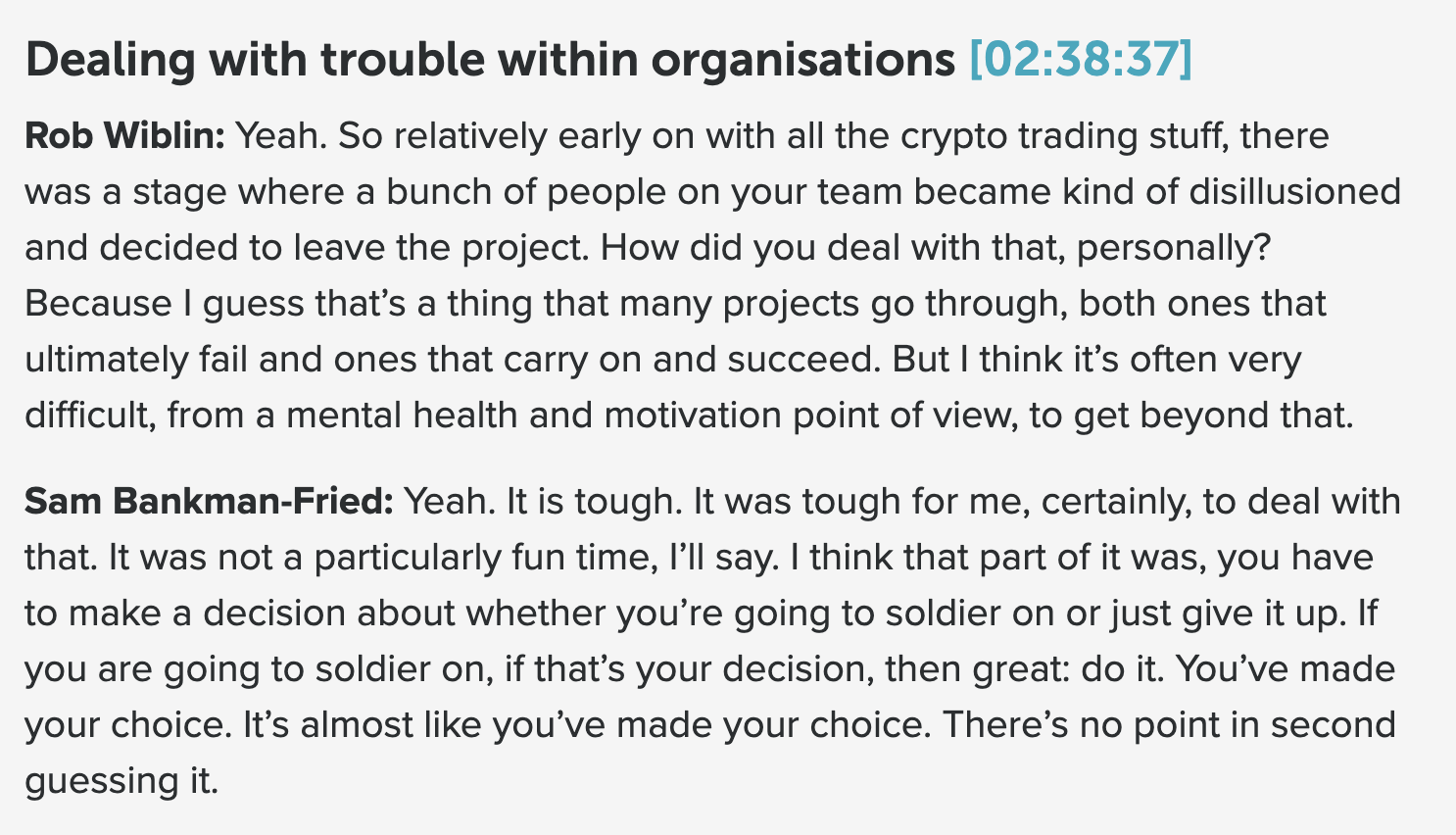
We knew that SBF's wealth was a very high proportion of effective altruism's total wealth. And we ought to have known that something that took him down would be catastrophic to us.
This was Charles Dillon's take, but he tweets behind a locked account and gave me permission to tweet it.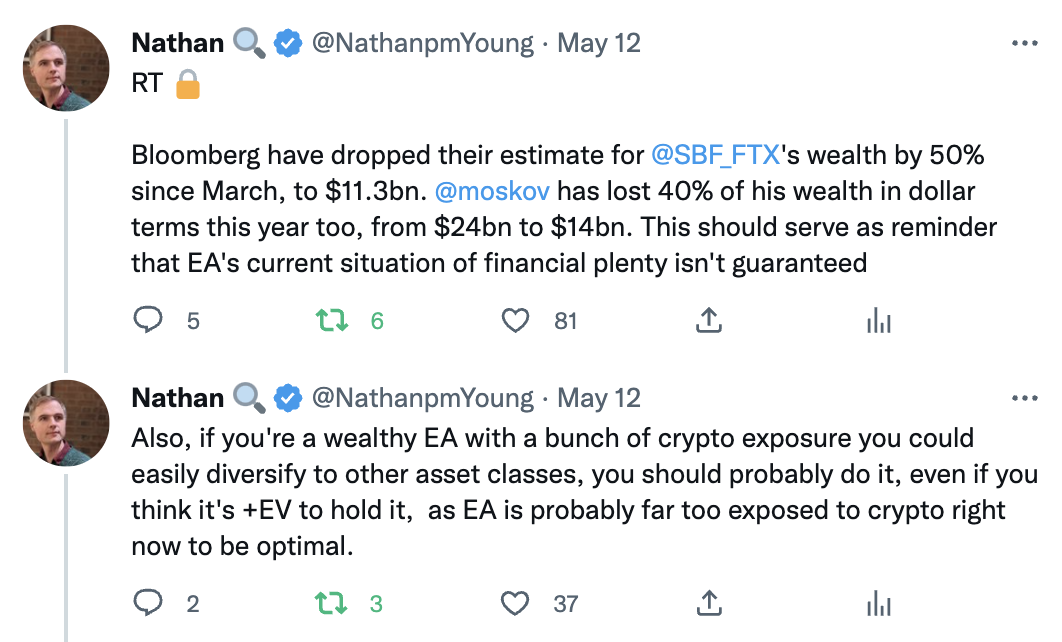
Peter Wildeford noted the possible reputational risk 6 months ago:
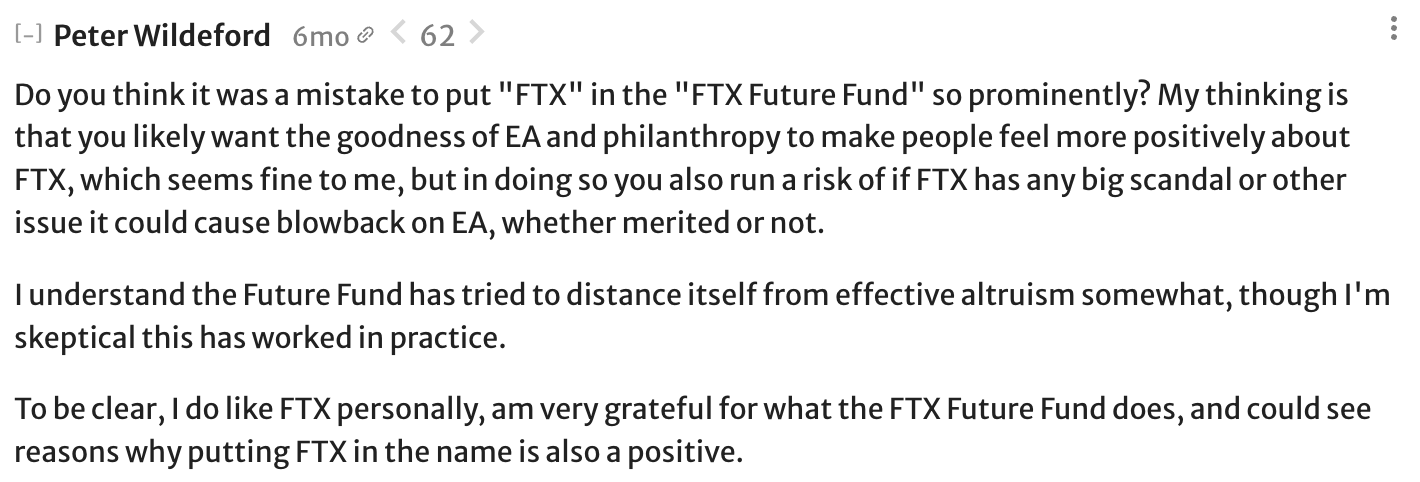
We knew that corruption is possible and that large institutions need to work hard to avoid being coopted by bad actors.
Many people found crypto distasteful or felt that crypto could have been a scam.
FTX's Chief Compliance Officer, Daniel S. Friedberg, had behaved fraudulently In the past. This from august 2021.
In 2013, an audio recording surfaced that made mincemeat of UB’s original version of events. The recording of an early 2008 meeting with the principal cheater (Russ Hamilton) features Daniel S. Friedberg actively conspiring with the other principals in attendance to (a) publicly obfuscate the source of the cheating, (b) minimize the amount of restitution made to players, and (c) force shareholders to shoulder most of the bill.

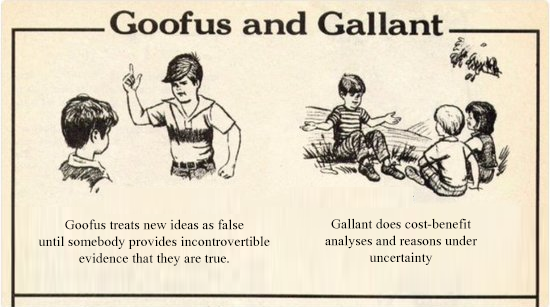
I expect the best output we could reasonably hope for from any improved detection system would be relatively modest. For example: "several community members have come forward with specific allegations of past serious misbehavior by megadonor X, and so we estimate that there is a 20% chance that X's company will be revealed as (or end up committing) massive fraud in the next ten years." If someone has strongly probative evidence of fraud, that person should not be going an outfit set up by the EA community with that information . . . they should be going to the appropriate authorities.
Let's say a detection system had discerned a 20% chance of significant fraud by SBF -- this seems to at least several times better performance than the results obtained by organizations with better access to FTX's internal accounting and lots of resources/motivation. What then? Does the community turn down any FTX-related money, even though there is an 80% chance there is nothing scandalous about FTX? How does that get communicated in a decentralized community where everyone makes their own decisions about who to accept funding from?
And how is that communicated -- especially in a PR/optics fashion -- in a way that doesn't create a serious risk of slander/libel liability? "We think Megadonor X poses an unacceptable risk of causing grave reputational harm to the community" sure sounds like an opinion based on undisclosed facts, which is a potentially slanderous form of opinion even in the free-speech friendly USA.
It was widely known that crypto-linked assets are inherently volatile and can disappear in a flash, so while better intel on SBF would have better informed the odds of catastrophic funding loss it was not necessary to understand that this risk existed.
All that is to say that the better approach might be more focused on what healthcare workers would call universal precautions than on attempting to identify the higher-risk individuals. Wear gloves with all patients. Always "hedge on reputation" as Nathan put it below.